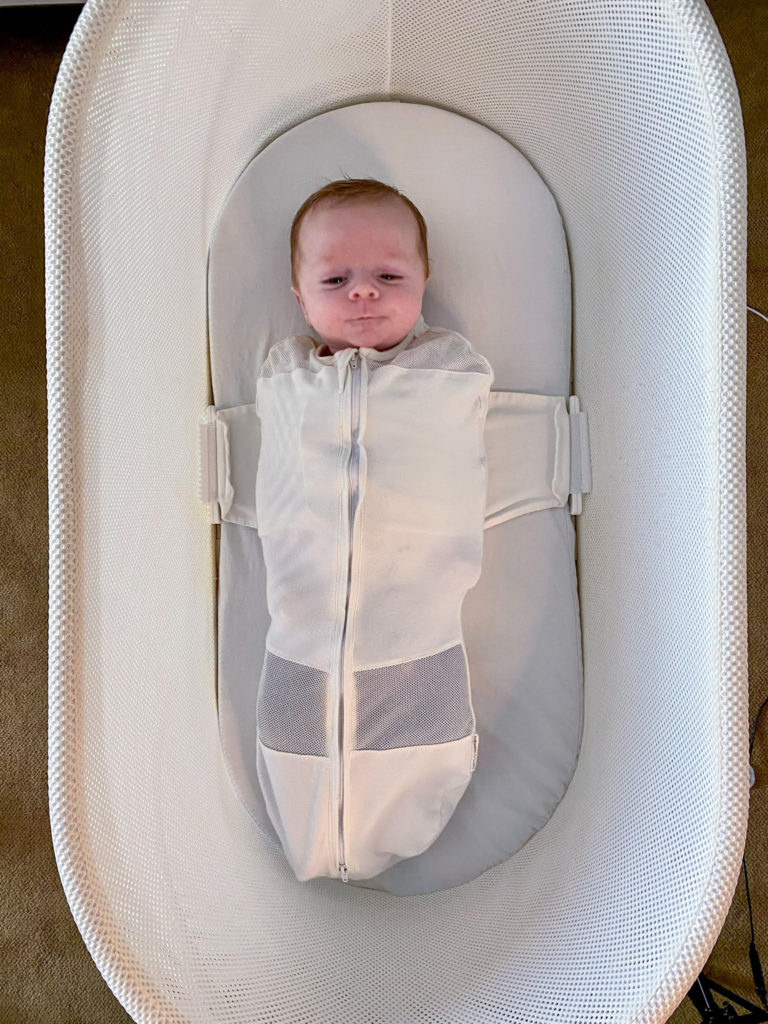fall back: adjust your baby’s sleep schedule for daylight savings time change
Fall Back: The Daylight savings time change is approaching and you may be eager to make adjustments to help your baby’s sleep schedule….The Daylight Savings time changes can feel like cruel and unusual parenting punishment!
Twice a year we have to reevaluate our always-dynamic baby’s schedule to make adjustments for a shift forward or back. When we “Fall Back” our morning wake up time shifts earlier, so our 7 a.m. wake up can become 6 a.m.!! Read on for ways to adjust your baby’s schedule for daylight savings time.
Follow our time change tips to prep below and receive our free guide directly to your inbox HERE!
What does the Daylight savings time change mean?
It means an earlier wake-up time by the clock on Sunday morning but still feels like your usual wake-up time. If your baby has a 7 a.m. wake up time, that now becomes a 6 a.m. wake-up!
If you have worked hard to get your baby’s schedule on track, you may start to get worried hearing this, but not to fret, I have some tips that can help ease into the transition.
Although a gradual transition may work for some families, others require maintaining the same schedule for work, daycare, and school purposes and can use the weekend to help with the time shift!
The Importance of Getting Outside on Sunday
Sleep is regulated by our circadian rhythm which is run by light and dark. With any time transition, exposing your child to natural light in the early morning and afternoon can help with the time adjustment.
Play outside, go to the park, do anything to get outside, and expose your family to natural light during the day will help with melatonin (sleepy hormone) production at night.
This is the season where Blackout shades become important for the morning. With the sun rising at an earlier time, your child’s bedroom may not be as dark in the morning. I love the Blackout shades from Sleepout! Use code: wellrested to take 10% off
How To Adjust Your Baby’s Schedule to Fall Back for Daylight Savings??
3 Options to Choose From!
If your baby was older than 6 months at the last time change, try to remember how they did with that adjustment. I know it’s hard, it’s been 6 months!! Were they on the struggle bus for a week or two, was it more of an annoyance than an issue, or did you not have any issues at all??!! This will help guide you in how to approach the time change based on your Wee One’s temperament.
If your baby is less than 6 months old as of right now or was less than 6 months at the last time change, try to think about how they do in general with schedule adjustments. Are they an easy-going no big deal kind of baby if naps and bedtime fall at a different time OR are they more sensitive to changes!! This will help you decide which approach is a better fit for your family!
Option 1: Slow and Steady Prep
What Does This Mean?
It means you will start to make gradual adjustments to your child’s schedule one week before the time change to adjust their body and maintain their current clock schedule.
Who is This Good For?
- Families who have a baby who wakes at a predictable time every day (older than 4-5 months)
- Families who have a child that attends daycare. The first few days after a time change are notorious for being crazy at daycare! Take the time to prepare!
- Families who like how the current schedule works during the day and want to maintain the same schedule without an abrupt change
What Does a Schedule Look Like with Slow and Steady Prep?
Starting 6-7 days before we Fall Back on Sunday, start adjusting your child’s schedule later by 10 minutes every day. By doing this, you will help your baby maintain the same sleep pressure for naps and bedtime to land at the same clock time after the time change.
Yes, you will be starting the day or waking them up later than usual for those days leading up to the time change, but this will result in your baby waking up at their regular clock time on Sunday morning and prevent a jet-lagged feeling.
So, if your baby wakes around 7 a.m. in the morning each day, you will gradually push back morning wake-up time to 7:10, then 7:20, 7:30, 7:40, 7:50, and finally 8 am. Then on Sunday morning that 8 am wake up will be 7 am on the clock again!
Naps and bedtime will work the same way and adjust back by 10 minutes each day since you started the day later!
If your baby or toddler wakes up prior to the new desired wake time, you can leave them in the crib until that time OR if crying and not calming, it’s OK to take them out the crib and hold them, BUT keep them in the dark with low stimulation until the new desired time! Then, dramatically turn on the lights and start your day and adjust the rest of the day accordingly.
Push through during the day to adjust the nap and bedtime schedule later over the course of the week!
Other Tips
- If your toddler or preschooler is transitioning away from naps, but still needs one a couple of days a week, strategically plan for a couple of days leading up to Sunday to take naps and aim for a later bedtime.
- You can also let your baby sleep a bit longer at naptime to help push bedtime a bit later
- If your baby is less than 4-5 months old, try not stress about this! Just continue to follow your wake windows
- Get out into the daylight and expend as much energy during the day as possible.
- If you have an early riser (before 6 a.m.) who starts waking up at 5 a.m. after the time change no matter what strategies you use, contact me! Bigger Schedule adjustments will need to be made here!
Option 2: Weekend Fast Prep
What Does This Mean?
It means you will start to make bigger adjustments to your baby’s schedule on Saturday (the day before) the time change to adjust their body and to help maintain their current clock schedule.
Who is This Good For?
- Families who have a baby who wakes at a predictable time every day (older than 4 months)
- Adaptable and flexible temperament babies and toddlers
- If your baby or toddler attends daycare. The first few days after a time change are notorious for being crazy at daycare! Take the time to prepare!
- Families who like how the current schedule works during the day and want to maintain the same clock schedule without an abrupt change
What Does a Schedule Look Like with Weekend Prep?
Starting on Saturday before we Fall Back on Sunday, adjust your child’s schedule later by 30 minutes. By doing this, you will help your baby maintain the same sleep pressure and drive for naps and bedtime to land at the same clock time within a few days after the time change. Yes, you will be starting the day or waking them up later than usual on Saturday but this will result in your baby waking up at their regular clock time within a few days.
So, if your baby wakes around 7 am in the morning each day, you will gradually push back the morning wake-up time to 7:30 a.m. on Saturday. Then on Sunday morning push the morning wake up to 7:30- 8 am wake up will be 6:30-7 am on the clock again!
Naps and bedtime will work the same way and adjust back by 30 minutes each day since you started the day later!
If your baby or toddler wakes up prior to the new desired wake time, you can leave them in the crib until that time OR if crying and not calming, it’s OK to take them out of the crib and hold them, BUT keep them in the dark with low stimulation until the new desired time!
Option 3: No Prep & Wing It
What Does This Mean?
It means you don’t make any adjustments to your baby’s sleep schedule ahead of time!
Many times, the schedule will work itself out over a week or two and your baby will get back on track with their usual clock schedule.
And if you are one of the few who might be looking for a consistently earlier wake-up time in the morning (7 a.m is now 6 a.m.) and are ok adjusting the entire daily schedule earlier, this can work for you if you can consistently maintain this schedule!
Who Is This Good For?
- Families who have a baby less than 4 months old. The schedule is still wake window dependent and bedtime is variable based on what time the last nap ended. No Need to Prep at ALL!!!
- Families who don’t have a predictable bedtime or morning wake up time yet. If you don’t know what time your baby is going to wake up, that makes it hard to wake them 10 minutes later than usual every day! Just ride it out!
- Families who don’t have to leave the home by a certain time in the morning. If your baby’s wake up time is not required to be a certain time this is good for you!
Sleep Resources to help your family
If overnight wake ups or early morning wake ups are the norm and you’re ready to make a positive change..I have a class for you! The 4-24 Month Well Rested Collection will walk you step-by-step through a completely customizable sleep training experience. In just a few weeks, your baby will be falling asleep independently, getting 11-12 hours of independent night sleep, AND you’ll have a plan to navigate any future regressions or bumps in your journey. I’ll also help you set up a daytime routine and nap schedule that fits your family’s lifestyle and values. And you’ll get age-specific guidance to meet your baby right where he or she is developmentally at every stage from now until your baby turns 2.
We also offer 1:1 personalized sleep coaching to families including newborn support and sleep training plans starting at 3 months of age up to 4 years! We have multiple options that can help you get your baby’s sleep back on track!
Please Share this Post with a Mama!







